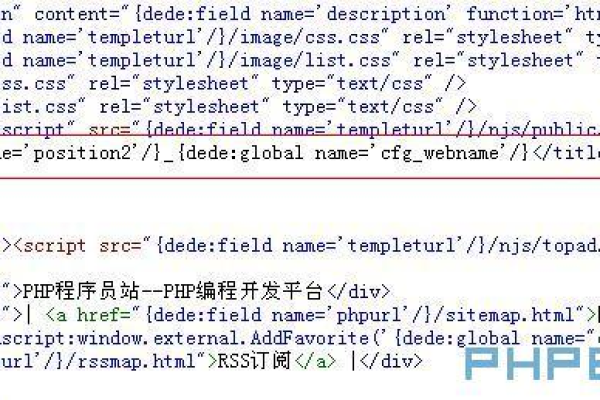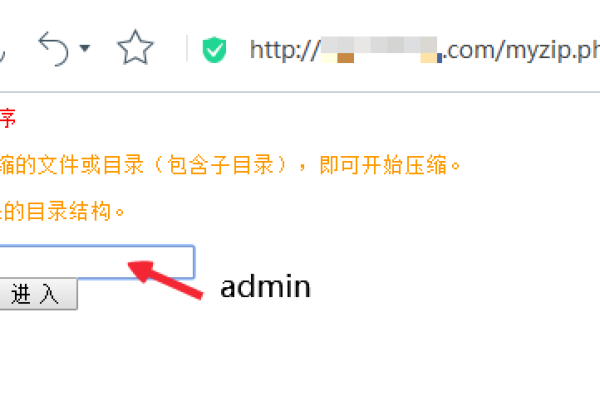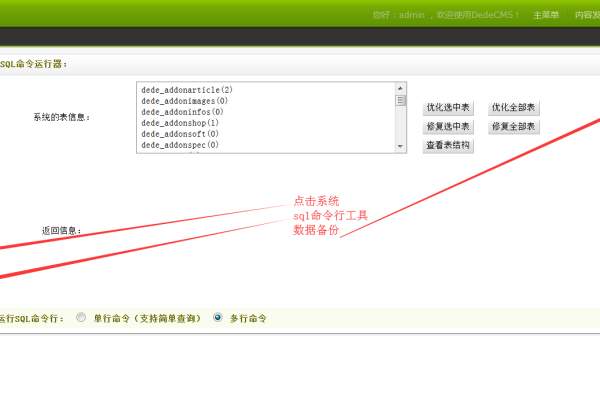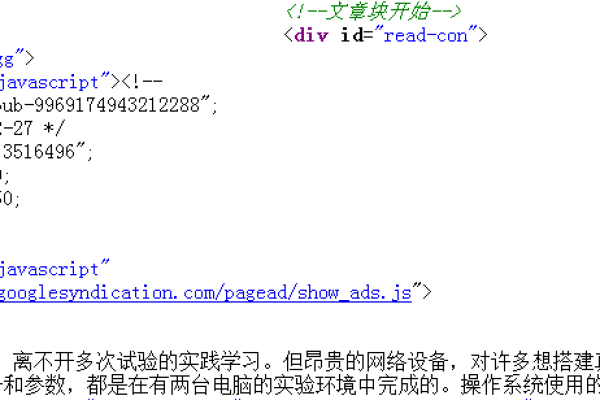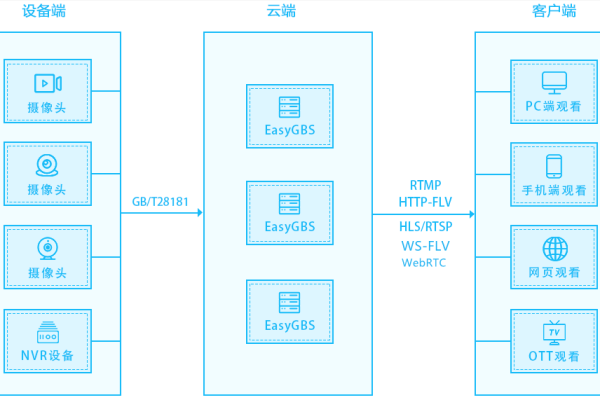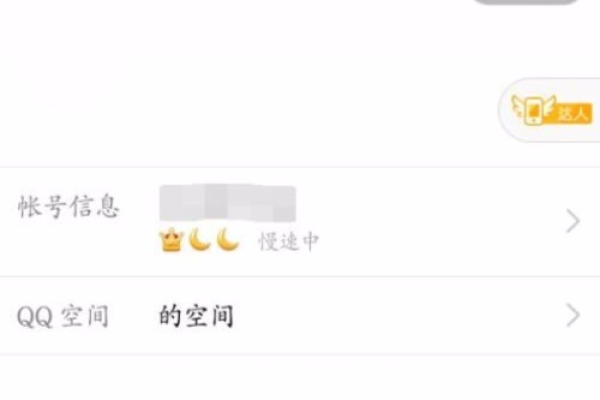dedecms 数据库连接文件
- 行业动态
- 2025-03-19
- 7
/data/common.inc.php,包含数据库配置信息。
在DedeCMS(织梦内容管理系统)中,数据库连接文件起着至关重要的作用,它负责配置和管理与数据库的连接信息,以下是关于DedeCMS数据库连接文件的详细解释:
数据库连接文件的位置
DedeCMS的数据库连接配置文件通常位于网站根目录下的/data/common.inc.php文件中,这个文件包含了与数据库连接所需的关键信息,如数据库主机地址、数据库用户名、数据库密码以及数据库名称等。
1、数据库主机地址:
这个参数指定了数据库服务器的地址,通常情况下,如果数据库服务器与Web服务器在同一台物理机器上,可以使用localhost作为数据库主机地址,如果数据库服务器位于远程机器上,则需要使用该机器的网络地址或IP地址。
2、数据库用户名和密码:
这两个参数用于验证连接到数据库的用户身份,需要确保提供的用户名和密码具有足够的权限来访问和修改DedeCMS所需的数据库表。
3、数据库名称:
这个参数指定了DedeCMS要使用的数据库名称,在安装DedeCMS之前,需要在数据库管理系统中创建相应的数据库,并在这里指定其名称。
4、其他配置选项:
$cfg_dbprefix:指定数据表的前缀,默认为dede_,设置数据表前缀有助于区分不同应用程序使用的数据库表,避免冲突。
$cfg_db_language:设置数据库连接使用的字符集,通常设置为gbk、utf8或utf8mb4,具体取决于网站的编码需求。
如何配置数据库连接文件
1、打开配置文件:
使用文本编辑器(如Notepad++、Sublime Text等)打开/data/common.inc.php文件。
2、编辑配置信息:
根据实际的数据库服务器信息,修改文件中的数据库主机地址、用户名、密码和数据库名称等参数。
3、保存并上传:
保存对配置文件的更改,并将更新后的文件上传回服务器上的相应位置。
4、测试连接:
在浏览器中访问DedeCMS的安装页面或后台管理页面,检查是否能够成功连接到数据库,如果出现连接错误,请检查配置文件中的参数是否正确,并确保数据库服务正在运行。
安全性考虑
保护配置文件:由于数据库连接文件中包含了敏感信息(如数据库用户名和密码),因此应确保该文件的权限设置正确,防止未经授权的用户访问。
使用环境变量:为了进一步提高安全性,可以考虑将数据库连接信息存储在环境变量中,并在配置文件中引用这些环境变量,这样可以避免将敏感信息直接硬编码在文件中。
FAQs
Q1: 如果忘记了数据库密码,应该怎么办?
A1: 如果忘记了数据库密码,可以通过以下步骤重置:
1、登录到数据库管理系统(如phpMyAdmin)。
2、选择对应的数据库。
3、在“操作”或“权限”选项卡中,找到root用户或其他具有足够权限的用户。
4、点击“编辑权限”,然后找到“更改密码”字段,输入新密码并保存。
5、更新DedeCMS配置文件中的数据库密码为新设置的密码。
Q2: 如何确保数据库连接的安全性?
A2: 确保数据库连接的安全性可以采取以下措施:
1、使用复杂的密码,并定期更换。
2、限制数据库用户的权限,只授予必要的权限。
3、启用数据库的安全特性,如SSL加密连接。
4、定期备份数据库,以防数据丢失或损坏。
5、监控数据库的访问日志,及时发现并处理异常活动。

